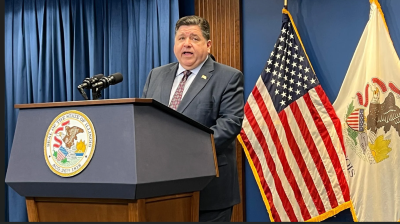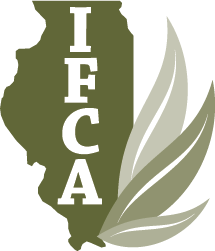State Lawmakers Do Little During Fall Veto Session
For months now, statehouse insiders have been discussing whether there’s a need for a fall veto session this year.
As one person put it, veto sessions are for things that the governor and legislators “have to do.” But with no gubernatorial vetoes to deal with, is there anything that absolutely has to be done before the end of the year?
Gov. JB Pritzker said early in veto session, he didn’t think there was any need for a supplemental budget bill before the spring legislative session that begins in January. Supplementals are often passed when the government has to deal with unforeseen problems — although supplemental appropriations during the last couple of years were needed later in the fiscal year because the state brought in way more money than it expected.
But Gov. JB Pritzker in a news conference this week signaled that Democratic leaders are discussing what, if any, actions the state may take against the future Trump administration.
The governor and the democrats in the general assembly didn’t bring up any issues during the last two weeks of veto session but could wait until the legislature reconvenes in 2025.
Pritzker met with senior staff this week to look at a possible Trump reaction-agenda. The governor did not get into any detail about possible proposals beyond vaguely listing policy areas ripe to warrant action. But most statehouse insiders believe Pritzker is looking at health care and reproductive rights issues.
Following his win, Trump said his governing ethos will be to keep the promises he made on the campaign trail, which include leaving abortion rights to states, a mass-scale deportation of immigrants and undoing federal assistance promoting clean energy. The governor said Illinois has already done much of the work to insulate the state from federal action.
He also mentioned raising the minimum wage, clean energy policies, protections for immigrants and attracting new businesses that he said will “ensure that tariffs and trickle-down economics do not define our state’s economic future.” As of right now, no issues facing the ag input industry or agriculture has been brought to the forefront for lame duck session.
The General Assembly will come back for lame duck sessions right after the next year and will wrap up on January 7th before the new General Assembly is sworn into office.
As one person put it, veto sessions are for things that the governor and legislators “have to do.” But with no gubernatorial vetoes to deal with, is there anything that absolutely has to be done before the end of the year?
Gov. JB Pritzker said early in veto session, he didn’t think there was any need for a supplemental budget bill before the spring legislative session that begins in January. Supplementals are often passed when the government has to deal with unforeseen problems — although supplemental appropriations during the last couple of years were needed later in the fiscal year because the state brought in way more money than it expected.
But Gov. JB Pritzker in a news conference this week signaled that Democratic leaders are discussing what, if any, actions the state may take against the future Trump administration.
The governor and the democrats in the general assembly didn’t bring up any issues during the last two weeks of veto session but could wait until the legislature reconvenes in 2025.
Pritzker met with senior staff this week to look at a possible Trump reaction-agenda. The governor did not get into any detail about possible proposals beyond vaguely listing policy areas ripe to warrant action. But most statehouse insiders believe Pritzker is looking at health care and reproductive rights issues.
Following his win, Trump said his governing ethos will be to keep the promises he made on the campaign trail, which include leaving abortion rights to states, a mass-scale deportation of immigrants and undoing federal assistance promoting clean energy. The governor said Illinois has already done much of the work to insulate the state from federal action.
He also mentioned raising the minimum wage, clean energy policies, protections for immigrants and attracting new businesses that he said will “ensure that tariffs and trickle-down economics do not define our state’s economic future.” As of right now, no issues facing the ag input industry or agriculture has been brought to the forefront for lame duck session.
The General Assembly will come back for lame duck sessions right after the next year and will wrap up on January 7th before the new General Assembly is sworn into office.

